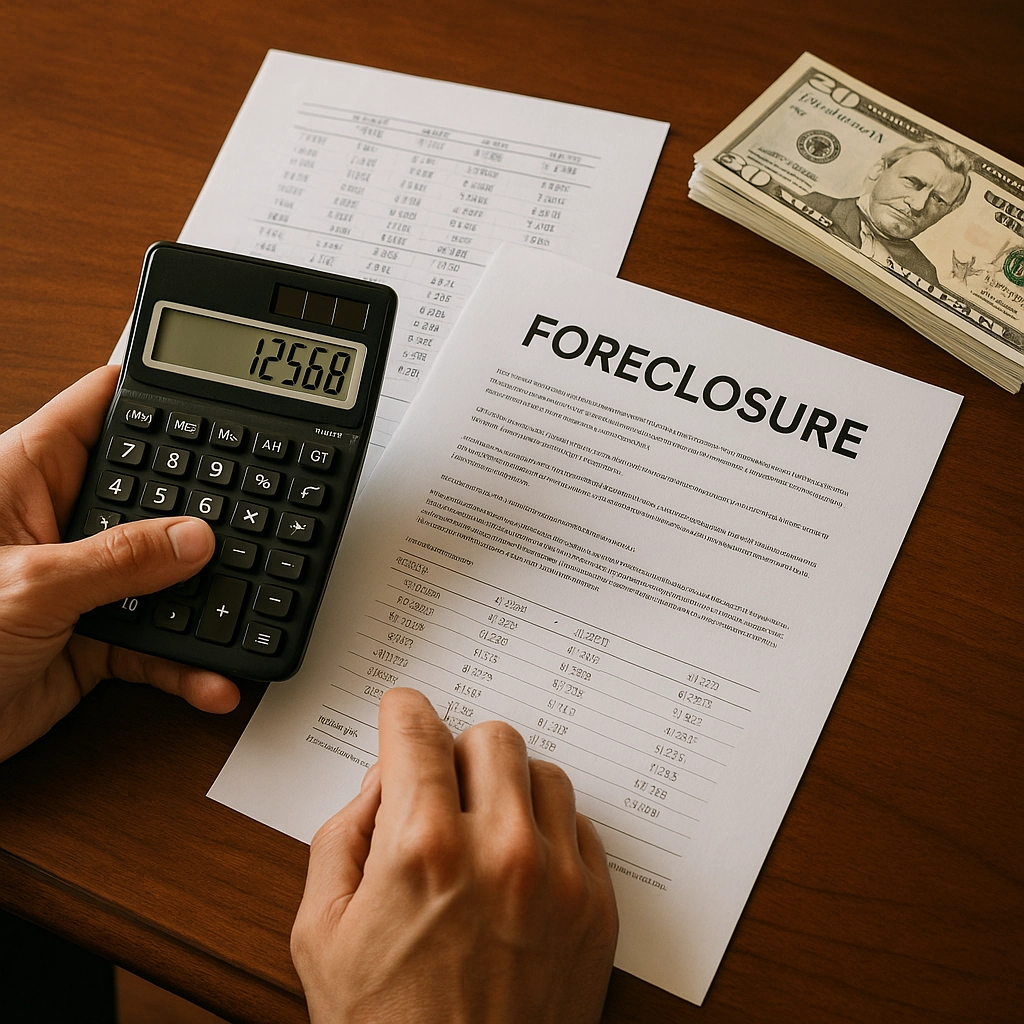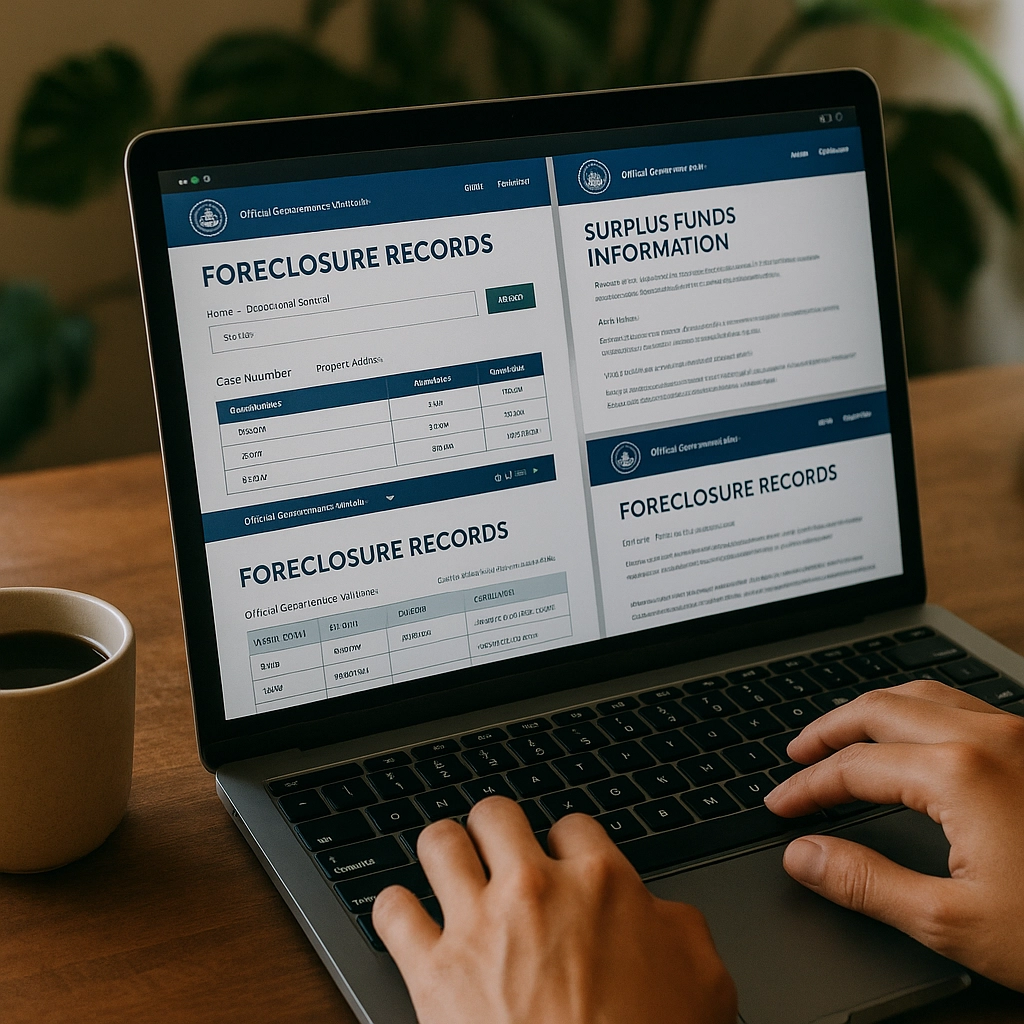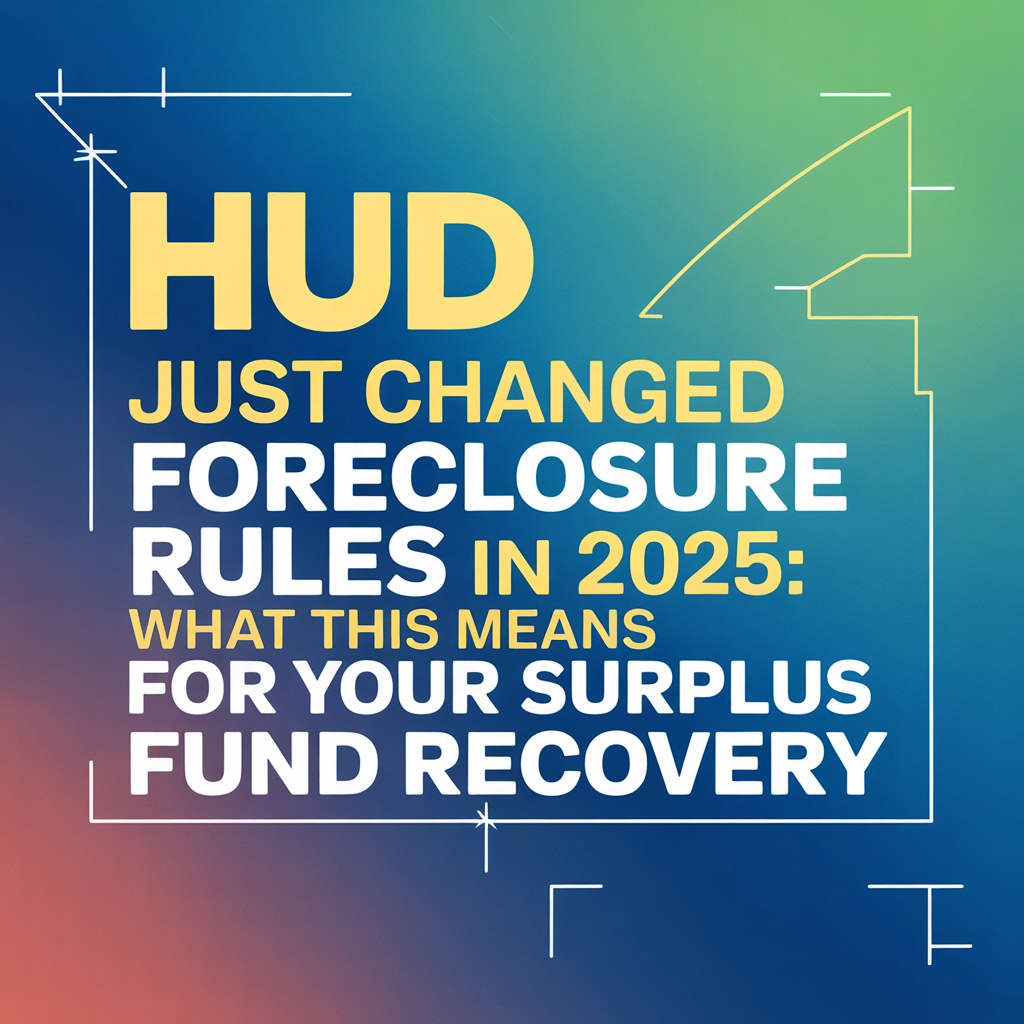If you've been following foreclosure news lately, you might've heard that HUD made some pretty big changes to foreclosure rules this year. And honestly? These changes could mean good news for Hawaii homeowners trying to recover surplus funds from their foreclosure sales.
Let's break down what actually changed, why it matters, and most importantly – how it might help you get more money back in your pocket.
What Exactly Did HUD Change?
HUD didn't just tweak a few things here and there. They rolled out several major updates that affect how foreclosure sales work and how quickly properties hit the market.
Faster Property Sales Process
In April 2025, HUD issued something called Mortgagee Letter 2025-13. Sounds fancy, but it basically means they're speeding up how quickly foreclosed homes get sold. They eliminated what used to be called the "exclusive sales period" for something called Claims Without Conveyance of Title (CWCOT) post-foreclosure sales.
What's that mean in plain English? Properties that used to sit in a waiting period now move straight to market. HUD designed these changes to get homes "available directly to future homeowners or to future homeowners via programs run by HUD-approved nonprofits or government entities."

New Loss Mitigation Rules
HUD also finalized new FHA loss mitigation rules through Mortgagee Letter 2025-12, with a compliance deadline of October 1, 2025. The big change here is they've set a 24-month limit on permanent loss mitigation options for borrowers. This replaces what was going to be an 18-month limit, so they actually gave people a bit more time.
Extended Help for Hurricane-Affected Areas
For our friends dealing with hurricane damage, HUD extended foreclosure moratoriums through July 10, 2025. This affects properties in Florida, Georgia, North Carolina, South Carolina, Tennessee, and Virginia that were hit by Hurricanes Helene and Milton.
While this doesn't directly affect Hawaii, it shows HUD's commitment to helping homeowners during tough times – something we can all appreciate.
How These Changes Help Your Surplus Fund Recovery
Now here's where it gets interesting for anyone trying to recover surplus funds from their foreclosure. These rule changes actually create some pretty good opportunities.
Properties Sell Faster at Better Prices
When properties move to market more quickly without those waiting periods, they're more likely to sell at fair market value. Think about it – the longer a property sits, the more it deteriorates and the lower the price gets.
With the new streamlined process, homes hit the market fresher and often in better condition. This means higher sale prices, and higher sale prices mean potentially larger surplus fund amounts for former homeowners to recover.

More Accurate Surplus Fund Calculations
Under the updated rules, mortgage companies now have to include the greater of three values when they submit their claims:
- The Commissioner's Adjusted Fair Market Value (CAFMV)
- The actual foreclosure sale price
- The redemption price
This improved calculation method is designed to be more accurate and fair. Plus, surplus funds can now be claimed through a specific item (Item 305) on the required forms, making the process clearer for everyone involved.
Clearer Recovery Process
The rule changes create a more direct path for homeowners to access their surplus funds. With properties selling more efficiently, the entire surplus fund distribution process moves faster too.
What This Means for Hawaii Homeowners
Living in Hawaii, we face unique challenges when it comes to real estate and foreclosure. Property values here are different from the mainland, and every dollar counts when you're trying to recover from a foreclosure.
Better Market Pricing
The faster sales process means Hawaii properties are more likely to reach their true market value. Given our competitive real estate market, this could result in significantly larger surplus amounts for former homeowners.
Reduced Wait Times
Nobody wants to wait months or years to get money that's rightfully theirs. The streamlined process means you might see your surplus funds sooner than under the old rules.
Protection from Scams
With clearer procedures in place, it's easier to spot scams. Remember – legitimate surplus fund recovery doesn't require you to pay upfront fees or sign over rights to your money. The process has official channels, and these rule changes make those channels more transparent.

What You Should Do Right Now
If you went through foreclosure and think you might have surplus funds waiting, here's your action plan:
Check Your Foreclosure Records
Look at your foreclosure sale documents. If your home sold for more than what you owed on all your mortgages, liens, and fees, there's likely surplus funds with your name on them.
Act Quickly
While there's no immediate deadline, don't wait around. Surplus funds don't earn interest while they're sitting with the government, and the longer you wait, the more complicated the recovery process can become.
Stay Alert for Scams
With these rule changes creating more opportunities for legitimate recovery, scammers are also getting more active. Be suspicious of anyone who:
- Contacts you first about surplus funds
- Asks for upfront payment
- Wants you to sign over rights to your money
- Claims you need their help to recover funds
Get Professional Help if Needed
While the process is more straightforward now, every situation is unique. If you're dealing with multiple liens, complex property ownership, or just feel overwhelmed, working with a legitimate asset recovery company can save you time and stress.
The Bigger Picture
These HUD changes aren't just bureaucratic shuffling – they represent a real shift toward protecting homeowner interests while keeping the foreclosure process efficient.
The elimination of unnecessary waiting periods, improved valuation methods, and clearer procedures all work in favor of homeowners trying to recover their rightful funds.
For Hawaii families who've faced foreclosure, this could mean the difference between recovering a few thousand dollars versus tens of thousands. In our high-cost-of-living state, that kind of money can be life-changing.

Moving Forward
The 2025 rule changes create the best environment we've seen in years for surplus fund recovery. Properties are selling faster at better prices, the calculation methods are more accurate, and the recovery process is more transparent.
If you think you might have surplus funds from a foreclosure, now's the time to explore your options. The new rules are designed to work in your favor, but you still need to take action to claim what's yours.
Your Next Steps
Don't let these positive changes go to waste. If you've experienced foreclosure in Hawaii and suspect you have surplus funds waiting, it's worth investigating. The improved rules mean you have a better chance than ever of recovering substantial amounts.
Ready to explore your surplus fund recovery options? Visit Integrity Property Locators to learn how we help Hawaii families reclaim their rightful funds through the new streamlined process.
The bottom line: HUD's 2025 rule changes have created the most homeowner-friendly environment for surplus fund recovery in years. Properties are selling faster at better prices, calculations are more accurate, and the process is clearer. If you've been through foreclosure, these changes could mean significantly more money in your pocket – but only if you take action to claim what's rightfully yours.

